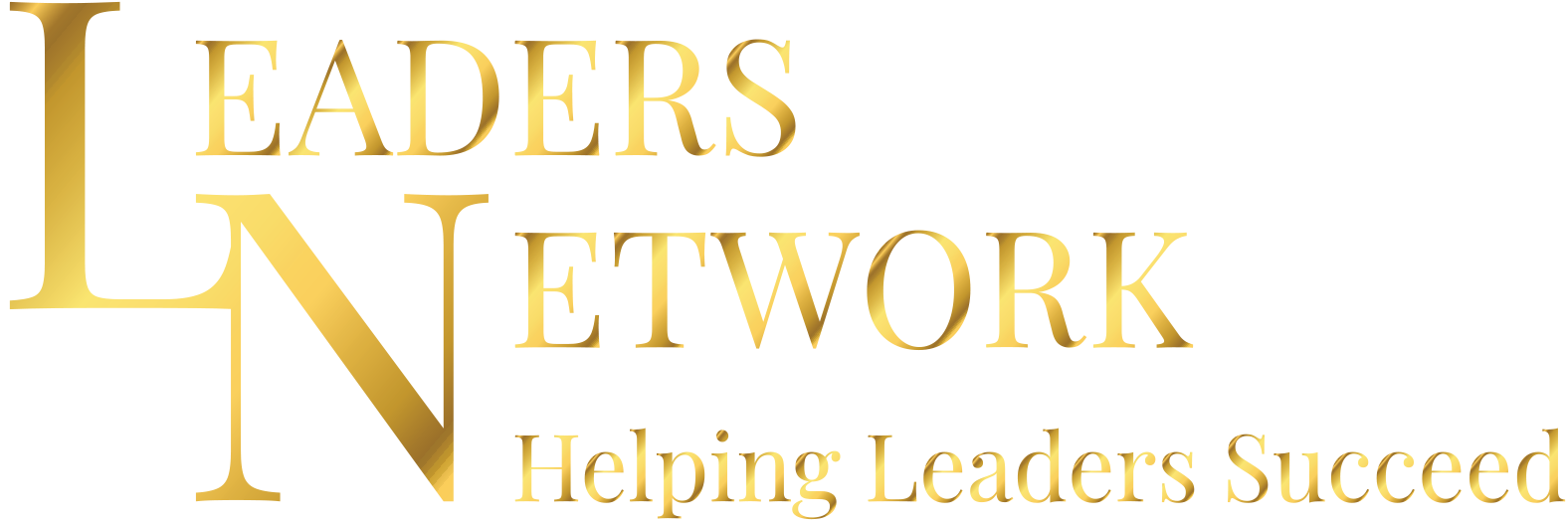Impostor Syndrome is Good for You
If you never feel like an impostor, you’re not growing—you’re repeating. Those butterflies in your stomach aren’t proof you’re unqualified; they are evidence you’ve stepped beyond yesterday’s limits.

Image: Shutterstock
It is normal to have doubts about your abilities when we start something new, take on a new role, business, or opportunity. Many people believe they are not good enough. The more likely truth is that we are breathing life into a new identity of which we are not yet familiar. It feels uncomfortable, and it is. However, when we embrace this discomfort and the uncertainty that comes with it, we will expand our zones of genius and, as a result, grow.
Impostor syndrome is an indicator that you are growing and developing.
Google Won’t Give the Answer Needed
Let’s take starting your own business as an example. Anyone can ask a question on Google and get an answer. Just have a go and put in a question like “How do I start a business?” or “Tips for planning in business.” You will get a myriad of responses that are all correct and different in their own way. This can be overwhelming for many people who simply want a straightforward approach to solving a problem.
Suppose your aim is to start the business and use all the knowledge and skills you've developed over many years for your own benefit rather than someone else's. In that case, you will likely experience some impostor syndrome when you first begin.
A Massive Undertaking
About 25 years ago, I was asked to undertake a massive project to change the way losses were incurred within the organisation I worked for. Throughout the organisation's entire history, this issue had never been successfully addressed in a sustainable manner. I did not want to take on this role; I saw it as a lose-lose situation. I truly believed it would be too hard; I wasn't good enough, and I didn't know how to do it. I told my boss so. I asked if I had a choice, and he said no.
He advised that they saw me as the only person who might have any chance of succeeding. I asked why they thought that, and I was told that it was because I achieve whatever I set my mind to. There was some truth in that; however, I still did not believe that what they were asking me to do—save the company about $20 million—was even possible. It would destroy my career, and I would be sacked. At the time, getting sacked would have been one of the worst things that could have happened; if I fast-forward 20 years, I would say it would have been a blessing—I just wouldn’t have recognised it then.
The Story Continues
I digress. After telling my boss I hated him, I got on with the job and told him I had conditions. I had to meet with the CEO, explain what I needed, gain clarity on his expectations, and then I would get started. I did all of this, and about three years later, the program we developed and the team we assembled contributed to the company saving $35 million.
Throughout all of this, I felt like an impostor. For the whole three years, I never truly believed we could do what we were being asked to do; however, I knew that if I kept showing up, kept planning, embraced my fears and the uncertainty, and established good systems and processes along with a huge dose of creativity, results could be achieved. Never in my wildest dreams did I believe it would turn out as great as it did.
Our Core Needs
Based on Tony Robbins' work, we all have six core needs. These core needs drive decisions we make and shape the reasons behind our actions. All behaviour, whether functional or dysfunctional, arises from our ability to consistently meet these core needs. Understanding your needs and the psychology behind them can influence the habits you create or change in your life, helping you achieve your goals.
“You see, in life, many people know what to do, but few actually do what they know. Knowing is not enough! You must take action.”
Tony Robbins
Each of us prioritises our needs differently, and for most of us, at least two core needs are the most important. Our decisions are based on which needs we prioritise first, so when changes occur that we cannot control, it can feel like we do not have a choice. Be assured that everything is a choice, and how we respond to change and recognise our core needs can have a positive and lasting impact on our decisions.
The Six Core Needs
These six core needs are essential and unavoidable, encompassing feminine and masculine energy. They are part of the human macro-patterns, which means they exist within every individual.
1. Certainty: means having the assurance that we are secure and safe.
2. Uncertainty: is the need for adventure, variety, challenge, and change.
3. Significance: is feeling special, important, unique, or needed.
4. Connection: is the intense feeling of love and closeness with others or things.
5. Contribution: is the sense of service, giving and making a difference to others.
6. Growth: this expands capability, understanding, and meaning.
Impact of Understanding Core Needs
When I parted ways with this company about eight years ago, I reflected on these learnings and decided to start my own business. Instead of helping another large organisation succeed, I chose to create my own success. The impostor syndrome returned, big time!
While I believed I could achieve anything I set my mind to, having plenty of evidence to support this, I had no idea what was involved in starting my own business. I thought I could just come up with a business name, and people would want to start working with me. The reality could not have been further from that, even if I were on Mars. I hadn't caught up with who I was becoming, and I thought I could just wing it. The fact is, I did not take myself seriously and kept telling myself that if I didn’t make money, it didn’t matter.
Well, that self-limiting belief came back to haunt me years later when financial pressure increased due to some family challenges. I realised that I let impostor syndrome get in the way of being the best I could be to help others be the best they could be. So, it was a lose-lose situation. This hit me about three years ago, and I knew I was at a crossroads. I needed to accept that I was a failure or embrace my impostor syndrome, which was trying to hold me back, and become comfortable with being uncomfortable. Put another way, I embraced uncertainty big time, and this was extremely uncomfortable. I was finally catching up with who I was becoming.
Expanding Comfort Zones
What is interesting is that real impostors don’t experience impostor syndrome. If we are not impostors when experiencing this syndrome, then what are we experiencing? Growth.
Impostor syndrome is an indicator that we are growing. We are breathing life into a new identity with which we are not yet familiar.
Taking it a step further, if we do not experience impostor syndrome, we are not expanding our comfort zone to become the next version of ourselves we need to become to handle the next level of whatever life brings.
If you want to grow, then welcome this impostor syndrome on board for the ride.
Overcome Impostor Syndrome with Planning
Becoming proficient at planning is a learning process, just like any other skill we develop throughout our lives. We start off being unconsciously incompetent because we do not know what we do not know about planning. Then, when we learn that planning is beneficial for business, we become consciously incompetent, because we now recognise that we lack the knowledge to plan effectively.
Next comes the rewarding part: we decide to start learning how to plan, and we eventually become consciously competent because we now know how to structure the plan. We build good habits to consistently show up with the planning process and continually improve how it is done.
The final stage of learning occurs when the planning mindset has evolved, and the process of creating good habits and consistently following a solid planning structure unfolds, ultimately leading us to become unconsciously competent. This is when planning becomes second nature and a normal way of being to achieve results.
The learning process we go through in everything we do is a powerful framework to be aware of, as it reassures us that we can learn to do anything when we want to, and this can bring certainty in an uncertain world. It is all about making good choices about how we show up, because we never have everything licked in life. Making good choices is an ongoing process, just like learning.
Here are 3 tips to help with learning how to become a planner:
Tip #1
Decide to adopt a planning mindset. It was Dwight Eisenhower who said, “Plans are nothing, planning is everything”. Creating a plan is the easy part; however, grasping the yearly, quarterly, and weekly planning process will help you bring your plan to life. This is about consistency, focus, and prioritisation.
Tip #2
Use a best practice structure to develop your planning habits, which you can repeat and refine. This will provide you with a framework that enables continuous improvement in planning to achieve your desired results. When I started doing this over five years ago, I was clunky and unsure how it would work; however, as I consistently used the process and structure each year, the learning process has been effective. I now use a simple planning rhythm: 10-30-60-120. 10 minutes daily, 30 minutes weekly, 60 minutes monthly and 120 minutes quarterly to chunk down the yearly plan.
Tip# 3
Be consistent in how you show up for your planning. Creating good habits around planning and consistently applying your learnings is imperative. Achieving something one day does not mean you can take it easy the next day. Making good choices and creating good habits is an ongoing process of showing up as the type of person you want to be, both in business and in life. Chunking down your plan will support you in achieving this because it provides a consistent process to follow.
To Sum Up
Embracing these 3 tips will support you as a leader in business and in life because, as Benjamin Franking originally said, “Failing to plan is preparing to fail”. Now you wouldn’t want to do that, would you?
Imposter syndrome isn’t a flaw; it’s a sign of growth. When you step into a new identity, discomfort is a sign that you’re expanding your capacity. Channel that energy into disciplined planning: adopt the mindset, use a simple rhythm (10-30-60-120), and show up consistently. Know less, act more. Plan the work, work the plan, and let the results reflect who you believe you are and want to be.
Would you like to learn more about navigating Imposter Syndrome? Click on Contact Us, and we will be in touch.




